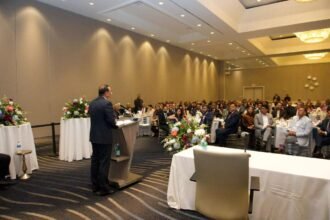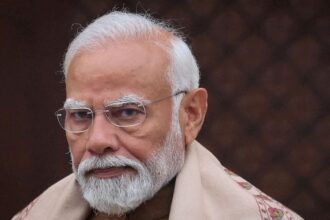Islamabad: Youth leaders and civilSociety Organizations came together with Shirakat – Partnership for Development for a press conference at Rawalpindi Press Club this Friday. They raised the importance of fostering youth participation in governance processes.The event marked four years of NCA’s and Shirakat’s collaboration on youth empowerment under the European Union-funded ‘Power to the Youth’ project. The representatives from CSOs, youth leaders,and Shirakatunderlinedthe importance of the youth’s role in promoting participatory and accountable governance. Ms. Samina, Programme Manager at Shirakat called attention tothe criticality of theyouth’s role in good governance stating,“Pakistan facesseriousgovernance challenges—as chronic political instability, inconsistent policies, weak institutions, corruption, and a lack of accountability— contribute to poor governance.” She said that the United Nations’ principles of good governancecall for a participatory, responsive, and accountable governance system in society. “With 64% of Pakistan’s population under 29, youth engagement in governance is crucial, offering both economic and social returns,”she said. She pointed to research showing that youth-led initiatives in developing countries reduced corruption perceptions by 15% over the last decade. Ms. Urooj, representing Vision Buildinghighlighted the barriers to the youth’sparticipation in governance.She pointed out that, perthe Pakistan Youth Development Index (PYDI), only 20% of Pakistan’s young people feel heard in public decision-making.She emphasized the need for pathways to include youth in governance, noting that inclusivity strengthens community engagement and fosters responsibility. “Studies show promising results with youth involvement in governance, with regions experiencing a 30% rise in community trust and cooperation where youth leaders are active,youth-led initiatives bring fresh perspectives to governance,” she said., A young leader IqraZeeshan from Rawalpindi highlightedhow governance issues impact the life of a common man in her community, whereinfrastructure problems restrict access to markets, schools, and healthcare, especially for girls. “Limited healthcare facilities at the local level force residents, especially women to rely on traditional healers adding to health risks.” She highlighted. Touseef Haider (youth representative) expressed appreciation for the European Union-funded trainingfor youth in “Leadership, Climate Action, and Gender Equality” held by Shirakat in her community. “These trainings have raised awareness among youth and largely empowered young people for self-initiative. He added.“Mine and my fellow youth’s efforts were successful in petitioning for a middle school for girls and planting urban forestsin our area to combat climate change,” He said. He called for government supportto expand youth engagement, emphasizingthat empowering youth locally creates a ripple effect, fostering sustainable development. The speakers urged the government, civil society, and international partners to enhance their efforts for youth development and empowerment calling for the need for action quoting ‘Power to the Youth’ as an example.
European Union, NCA and Shirakat Mark Four Years of Collaboration Fostering Youth Empowerment

You Might Also Like
Leave a comment







